
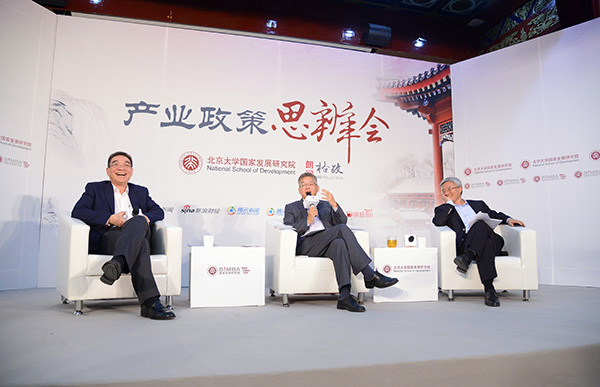
Industrial policy is currently one of the most popular talking points in economics. A clash between Professors Lin Yifu and Zhang Weiying of the National School of Development (NSD) at Peking University has evolved into a nationwide debate over industrial policy theory and practice. To promote further discussion of this issue and carry forward the academic spirit of seeking harmony but not uniformity of the NSD, Langrun & Gezhi has scheduled a one-on-one debate between them on the afternoon of November 9th.
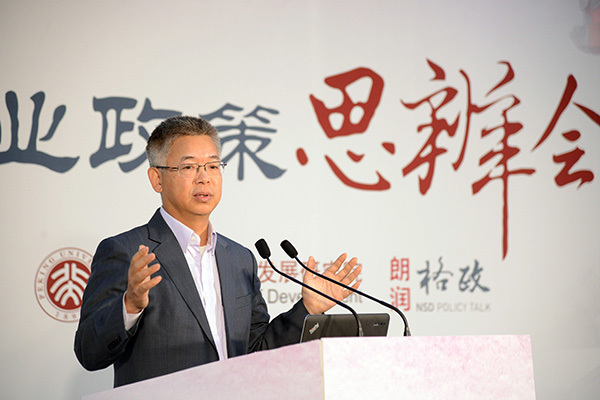
Professor Huang Yiping, who is the vice-dean of the NDS and presided the seminar, said although Lin and Zhang differ in their academic perspectives, they share much common ground: both are students of Nobel Prize winners, founders of the NSD at Peking University, active in the forefront of policy research and willing to discuss academic issues openly and wholeheartedly. Professor Huang pointed out, the debate is an extended discussion after the Lin-Zhang debates on state-owned enterprise reform in 1990s and late-developing advantage in 2014.
Lin Yifu: Industrial Policy and National Development
Professor Lin began by giving an academic definition of “Industrial Policy” and highlighted the history that 13 economic entities with notable and sustainable growth after the WWII received the backing of state industrial policy.
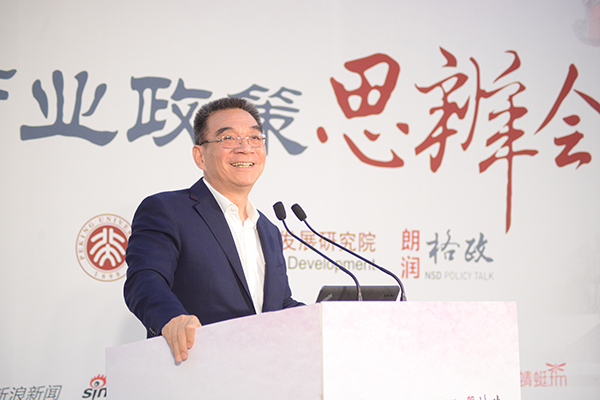
We can’t discard industrial policies just because most of them failed to work; economists should seek the truth hidden behind the success or failure of industrial policies and help government improve the probabilities of formulating successful industrial policies, argued Professor Lin. Professor Lin stressed that:At each given level of development, the market is the basic mechanism for effective resource allocation. However, economic development as a dynamic process entails structural changes, involving industrial upgrading and corresponding improvements in "hard" (tangible) and "soft" (intangible) infrastructure at each level. Such upgrading and improvements require coordination and inhere with large externalities to firms' transaction costs and returns to capital investment. Thus, in addition to an effective market mechanism, the government should play an active role in facilitating structural changes.
According to the new structural economics advocated by Lin Yifu, the development of a country should leverage its comparative advantage, which is dependent on its factor endowment.
Zhang Weiying: Root of Industrial Policy Failure
Professor Zhang started by identifying his difference with Professor Lin in paradigms of market theory: Lin follows the “Neoclassical Economics Paradigm” while Zhang follows the “Paradigm of Mises-Hayek”; the root why industrial policy fails is the limits of human cognition and the distortion of incentive system; industrial policy, as a centralized decision-making product, has a far lower probability of success than decentralized decision-making by enterprises.
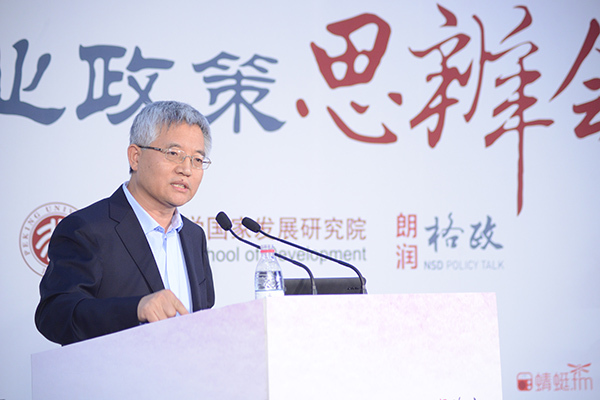
Moreover, Professor Zhang also drew examples to explain why external factors and failed coordination cannot justify the existence of industrial policy; at last, he pointed out the logical self-inconsistency of the “Theory of Comparative Advantage Strategy” and the fallacy of “Growth-based Screening Method”.
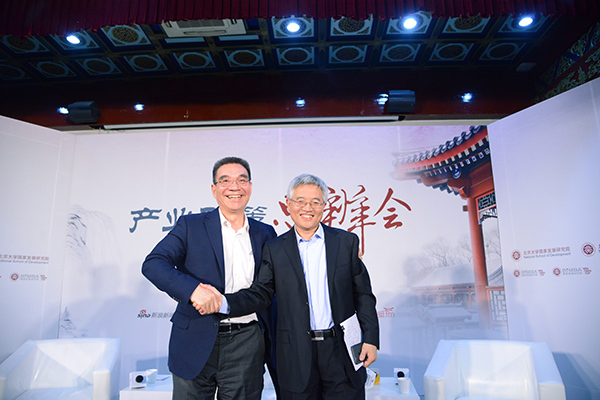
During the later discussion, Lin Yifu and Zhang Weiying shared their opinions on the benefits and perils of industrial policy and answered questions of the audience.
(Reported by Zhang Tong)